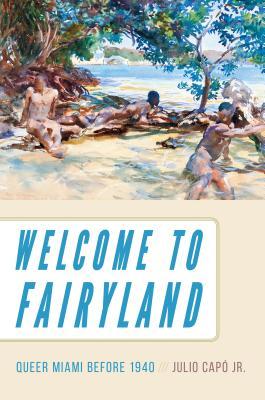
Drawing from a multilingual archive, Capo unearths the forgotten history of "fairyland," a marketing term crafted by boosters that held multiple meanings for different groups of people. In viewing Miami as a contested colonial space, he turns our attention to migrants and immigrants, tourism, and trade to and from the Caribbean--particularly the Bahamas, Cuba, and Haiti--to expand the geographic and methodological parameters of urban and queer history. Recovering the world of Miami's old saloons, brothels, immigration checkpoints, borders, nightclubs, bars, and cruising sites, Capo makes clear how critical gender and sexual transgression is to understanding the city and the broader region in all its fullness.
Drawing from a multilingual archive, Capo unearths the forgotten history of "fairyland," a marketing term crafted by boosters that held multiple meanings for different groups of people. In viewing Miami as a contested colonial space, he turns our attention to migrants and immigrants, tourism, and trade to and from the Caribbean--particularly the Bahamas, Cuba, and Haiti--to expand the geographic and methodological parameters of urban and queer history. Recovering the world of Miami's old saloons, brothels, immigration checkpoints, borders, nightclubs, bars, and cruising sites, Capo makes clear how critical gender and sexual transgression is to understanding the city and the broader region in all its fullness.
Paperback
$39.96